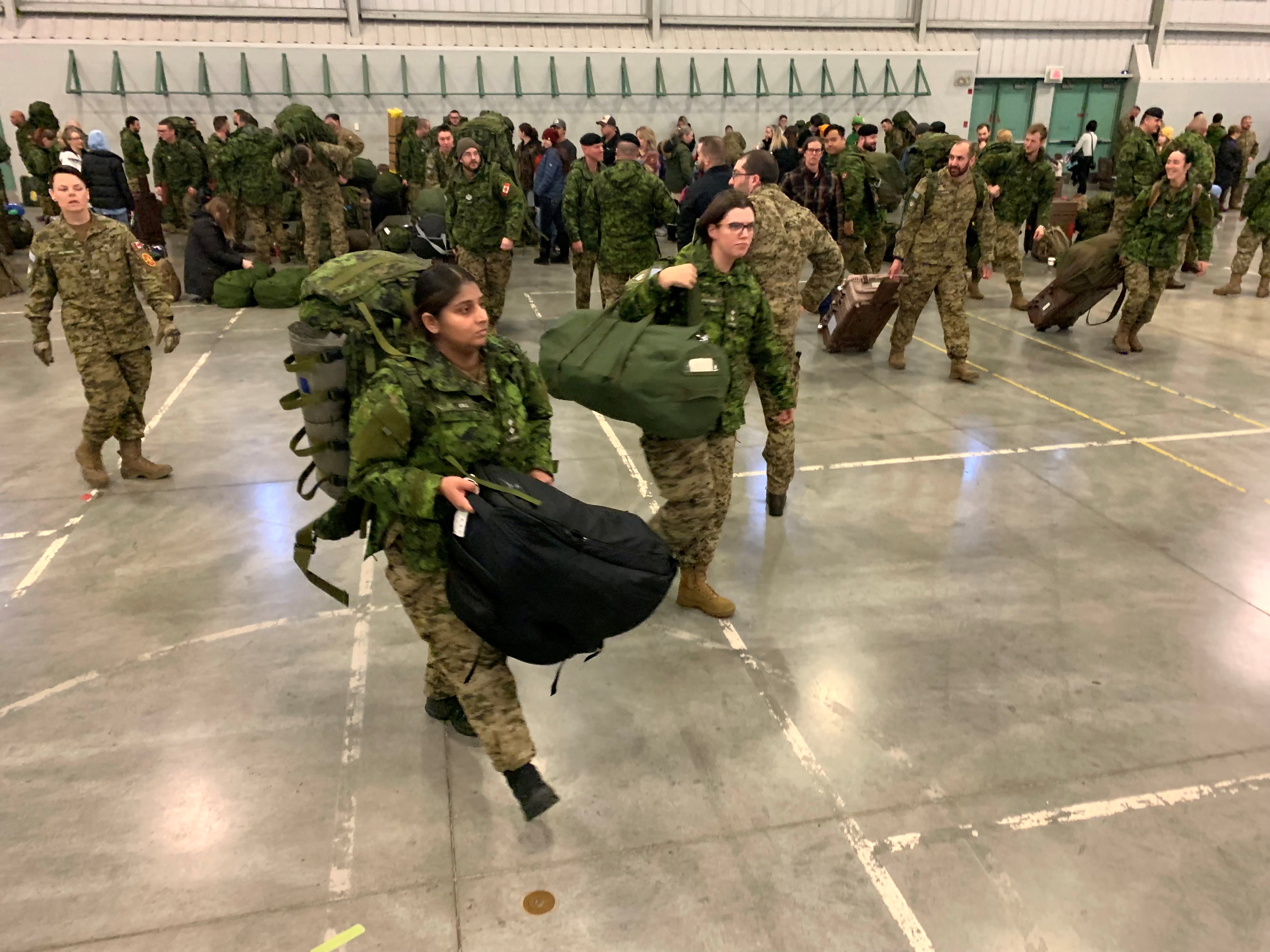ARTICLE AD BOX
UKRAINE has a fresh warning for Vladimir Putin – his beloved, £3billion Crimean Bridge “is doomed”.
Ukraine’s security service, the SBU, told The Sun that its army of cheap, homegrown Sea Baby drones will be essential to the plot to take the 12-mile monster down.
 Russia’s infamous Kerch Bridge to Crimea (pictured burning after a strike by Ukraine in October 2022) ‘is doomed’, says Ukraine’s SBU
Russia’s infamous Kerch Bridge to Crimea (pictured burning after a strike by Ukraine in October 2022) ‘is doomed’, says Ukraine’s SBU u24.gov.ua
u24.gov.ua The moment a Sea Baby blew up part of Putin’s favourite bridge damaging it last July
The moment a Sea Baby blew up part of Putin’s favourite bridge damaging it last July
Weaving and gliding unseen and unheard through dark waters, Sea Baby drones have become Russia’s greatest menace in the Black Sea – terrorising its warships and even striking its most defended bridge.
In an exclusive interview with The Sun, an SBU general – who goes by his call sign “Hunter” for security reasons – warned that far more was to come.
He declared that throughout the rest of 2024, “the Security Service is preparing further surprises for the enemy, including those with sea drones”.
Hunter did not divulge exactly what this will entail, but left one major clue.
“The Crimean Bridge is doomed,” he said.
Putin has long claimed his prized Kerch bridge – which he hailed a “miracle” upon its completion in 2018 – cannot be destroyed.
Ukraine says otherwise. For them, its target number one – a grotesque display of 10 years of Russian occupation.
Severing Russia’s only land bridge to Crimea would be a major step in winning the war in the Black Sea and choking Putin’s war machine.
Hunter added: “It is a legitimate target for Ukraine, because the enemy uses it as a logistics corridor to provide war supplies.”
Earlier this month, Ukrainian intelligence officials said the bridge would be destroyed by mid-2024 – giving themselves just weeks to pull off the near-impossible.
In response, The Sun looked into how Ukraine could pull off such a feat by pounding the structure with sea drones, Storm Shadow missiles and newly arrived F-16s.
Hunter pointed to the SBU’s two previous daring attacks on the Kerch bridge as evidence it was vulnerable.
In October 2022, the SBU blasted a gaping hole in the bridge’s centre using a truck bomb.
Unmanned surface vehicles have changed the course of naval warfare
'Hunter', a general in the SBULast July, they caught Russia by surprise once again with two Sea Baby’s packed with 850kg of explosives each tore apart a section.
In a statement, the Head of the SBU, Vasily Malyuk, told The Sun: “Let the Russians wait for another ‘clap’.
“We never repeat our operations and if Russia is modifying their defence against our sea drones, we, of course, go one step ahead.
“Everything has its time, you will see everything.”
 u24.gov.ua
u24.gov.ua
 East2West
East2West East2West
East2West The twisted wreckage of part of the bridge’s road section destroyed last July in a Sea Baby drone attack
The twisted wreckage of part of the bridge’s road section destroyed last July in a Sea Baby drone attackTHE BLACK SEA MISSION
Sea Baby drones laden with explosives have been blasting Russian targets, blowing up to £55million vessels out the water and turning the tides of the Black Sea war into Ukraine’s favour.
Remotely piloted using GPS and cameras, the lethal semi-submersibles are guided towards their targets and detonate on impact.
And almost every major hit has been perfectly captured on PoV footage onboard the naval drones, serving up repeated humiliations for Vlad.
Hunter said: “At the start of the full-scale invasion, control over the Black Sea gave Russia significant advantages, including a fire control over the Ukrainian coast and the ability to blockade our trade routes.
“That’s why President of Ukraine Voloydmyr Zelensky set us a task – end Russia’s dominance in the Black Sea.
“For the SBU, this mission was a chief priority. In particular, targeting missile carriers that the enemy uses to shell Ukrainian territories.”
Without a functioning navy of its own, Kyiv’s intelligence arm had to find what Hunter called a “creative solution”.
It came in the form of the “Sea Baby” – an unmanned surface vehicle (USV) capable of travelling 620miles and targeting enemy warships.
Fully designed by the spy agency, the sweet-sounding but devastating piece of kit has worked wonders in the Black Sea.
Hunter said the “unique, classified” USVs were fully designed and built by a “special unit” of Ukrainian engineers, IT specialises, navy officers and SBU secret forces.
“At that time, there was no expertise in the world for drones of such a high technological level,” he said.
Hunter said: “Unmanned surface vehicles have changed the course of naval warfare.”
Out of the 27 vessels Ukraine claims to have sunk or disabled, 11 were hit by Sea Baby drones.

 The moment a Ukrainian a Sea Baby headed straight for Putin’s £55million Black Sea missile-carrying ship
The moment a Ukrainian a Sea Baby headed straight for Putin’s £55million Black Sea missile-carrying ship The 184ft Russian warship, ‘Ivanovets’, was blown up in the attack off the coast of annexed Crimea
The 184ft Russian warship, ‘Ivanovets’, was blown up in the attack off the coast of annexed Crimea Footage onboard £170million Caesar Kunikov as Sea Baby drones stormed towards the ship on February 14
Footage onboard £170million Caesar Kunikov as Sea Baby drones stormed towards the ship on February 14 The sailors desperately fired into the water but their guns were no match for the USVs
The sailors desperately fired into the water but their guns were no match for the USVs The huge ship sunk as Valentine’s present for Putin
The huge ship sunk as Valentine’s present for PutinLast year, Ukraine added Mamai sea drones to its arsenal – its fastest kamikaze USV capable of hitting 62mph and used it to put a huge landing ship out of action.
Earlier this month, the SBU unveiled a new fleet of Sea Baby drones that can now “reach a target anywhere in the Black Sea” and carry a one ton payload.
Hunter said: “As a result of our actions at sea, Russian withdrew their most strategic warships from the Sevastopol Bay and are hiding them in Novorossiysk. Ukraine has successfully restored the grain corridor.”
And it’s true.
Ukraine has wiped out a third of Russia’s once fearsome Black Sea fleet, the rest appears to be on the run.
Russia no longer has supremacy of those contentious waters and Ukraine is back to exporting 5.2million tonnes of grain per month.
All of this, Hunter said, brings Ukraine closer to liberating Crimea and southern occupied Ukraine.
“The unique developments of the SBU – such as the Sea Baby and Mamai surface drones – allow them to effectively perform this task,” he said.
The SBU has managed to turn what began as just experimental prototypes in the first months of the war into what Hunter hailed as the “world’s first fleet of naval drones”.
A NATION BEHIND SEA BABY
Helping to spearhead these efforts is United 24, a fundraising project launched by President Zelensky.
Last February, it helped launch the “This is Battleship” fundraiser to build a new fleet of 35 “world-first” Sea Baby drones, costing £200,000 each, for the SBU.
The cash was raised in just 36 hours, pouring in from all across Ukraine as well as individuals across 93 countries.
Hunter added: “Shortly after, the SBU presented the first prototype manufactured thanks to this fundraiser.”
A spokesperson from United24 told The Sun that crowdsourcing the cash for weapons was essential to the war.
They said: “In the third year of the war, attention toward Ukraine is waning —this is reflected in both weapons aid and the situation on the frontline.
“So individual donations have been essential in helping Ukraine defend itself; they are changing how the war is fought.
“The [Sea Baby] project has become a game-changer in the Black Sea.”
 Ukraine’s newest naval drone, the Mamai, blitzed a huge landship in key Russian port and naval base Novorossiysk
Ukraine’s newest naval drone, the Mamai, blitzed a huge landship in key Russian port and naval base Novorossiysk Olenegorsky Gornya was badly damaged in the attack
Olenegorsky Gornya was badly damaged in the attackThe annexation of Crimea

RUSSIA invaded the Ukrainian territory of Crimea in 2014 - sparking ten years of war between the two neighbours.
On February 20, 2014, unmarked Russian tanks moved into the Crimean peninsula and so began a grinding and painful war that would eventually be fought all across Ukraine.
Russian troops dubbed “little green men” appeared in uniforms without insignia or bearing any flags.
In under two months between February and March 2014, Putin’s forces seized strategic sites, installed their own illegally appointed officials and annexed the peninsula.
But two years on from Russia’s full-scale invasion in 2022 and Crimea – once considered by Vlad a relative safezone – has become dangerously vulnerable to Ukrainian attacks.
It is now under fire from a wave of Storm Shadow missile and drone strikes, special ops raids and sabotage attacks, while far greater battles are expected.
Experts believe that taking Crimea could be a matter of a “death by a thousand cuts” for Putin as his stronghold is whittled down by the Ukrainians.
Former US General Ben Hodges told The Sun that since 2014, Ukraine’s goal has always been to win back Crimea.
“If Crimea falls, so could Putin,” he explained.

.png)
 6 months ago
5
6 months ago
5








 English (US)
English (US)